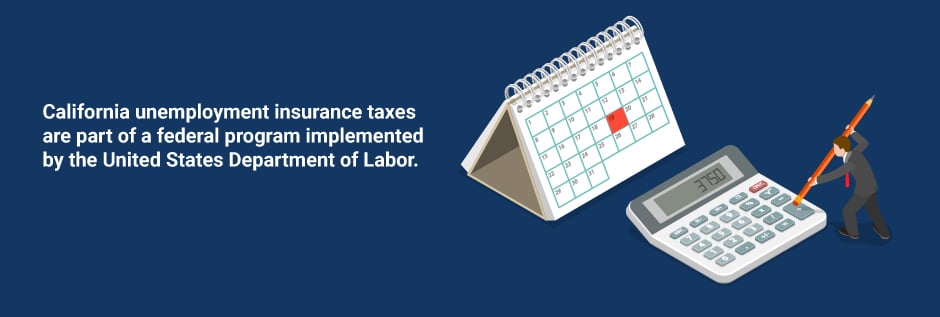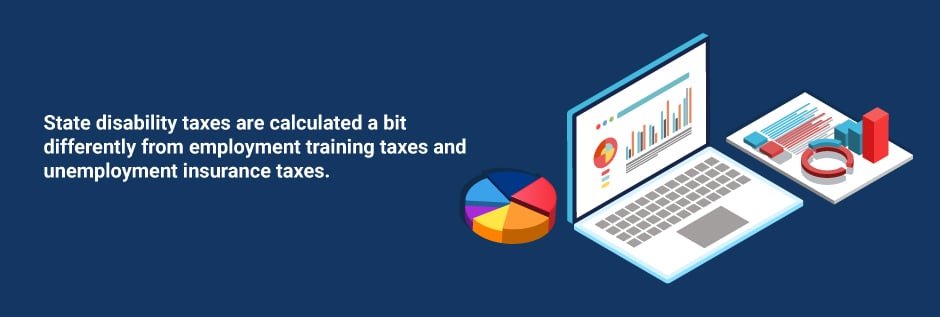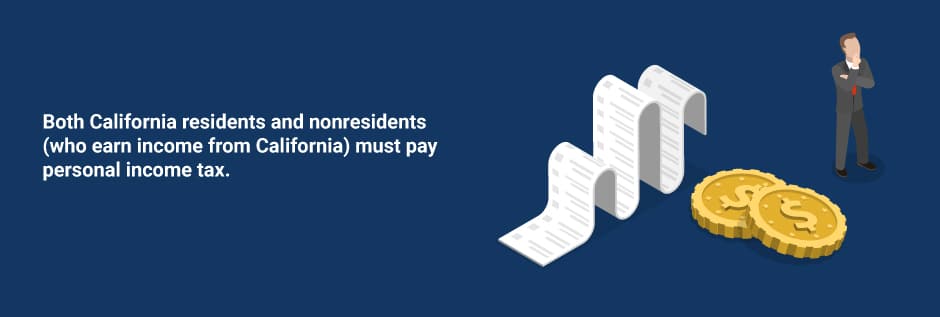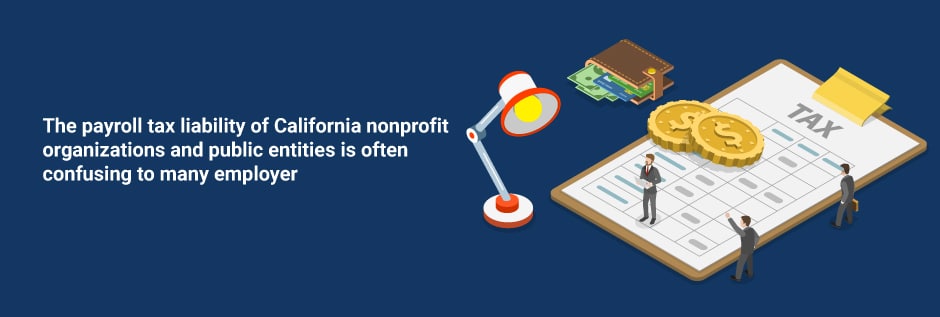Payroll Taxes
As a California business owner, there are many different tax laws that impact your company. What taxes are you responsible for? How do you calculate your payroll taxes? To learn about the answers to these questions and more, check out our guide below.
California Payroll Taxes: What Are They and How to Calculate Liability
In California, there are four types of payroll taxes. These are:
- Unemployment insurance taxes;
- Employment training taxes;
- State disability insurance taxes; and
- California personal income taxes.
California generally imposes all four taxes on wages.
Unemployment Insurance Tax (UI Tax)

California unemployment insurance taxes are part of a federal program implemented by the United States Department of Labor. These taxes were first enacted under the Social Security Act.
For employees who become unemployed due to layoffs or other reasons that are not the fault of the employee, unemployment insurance provides them with a temporary income.
For tax-rated employers, a percentage of unemployment insurance tax is paid on the first $7,000 in wages paid to every employee in a year. Employers are notified of how much they owe every December. However, the amount of unemployment insurance tax is not to exceed $434 per employee in a given year.
Employment Training Tax (ETT)

California has recognized the value in providing valuable training to employees. Such training strengthens businesses, and, thus, the state’s economy. The employment training tax offers funding to businesses in certain industries to provide training to employees.
Like unemployment insurance, employment training taxes are paid by businesses. Those businesses responsible for employment training taxes pay .001 percent of the first $7,000 in wages paid to every employee in a year. Employers will not pay more than $7 per employee every year in employment training taxes.
State Disability Insurance Tax

State disability taxes are calculated a bit differently from employment training taxes and unemployment insurance taxes. Businesses are required to withhold a certain percentage of state disability insurance on the first $118,371 in wages that every employee earns in a year.
The purpose of state disability insurance is to provide temporary payments to employees who suffer disabilities that are not work-related. State disability insurance also covers Paid Family Leave benefits, which provide payments to those employees who need to take a leave of absence from work to care for a sick family member or a new baby.
In 2019, the state disability insurance tax rate is 1 percent of an employee’s state disability taxable wages. The California State Legislature is responsible for calculating the tax amount every year. Currently, the highest state disability insurance tax is $1,183.71 for each employee each year.
California Personal Income Tax

Both California residents and nonresidents (who earn income from California) must pay personal income tax. Personal income tax is withheld from an employee’s paycheck. The amount is based on the employee’s Form W-4 or DE 4. In contrast to the state disability insurance tax, employment training tax, and unemployment insurance tax, there is no cap on personal income tax.
Personal income taxes are used to fund roads, human services, health programs, schools, and public parks, among other public services within the state.
Nonprofit Organizations and Public Entities

The liability of payroll taxes for California nonprofit organizations and public entities is often confusing to many employers. For the most part, California nonprofit organizations must pay unemployment insurance taxes, employment training taxes, state disability insurance taxes, and personal income tax withholding.
But, California provides an exemption for 501(c)(3) nonprofit entities. These nonprofits may decide to pay the same unemployment insurance taxes that commercial employers pay. Or, they may decide to reimburse the Employment Development Department the total cost of unemployment insurance benefits that were paid to former employees.
As for public entities, they may select one of the two alternatives described above to pay unemployment insurance. In addition, public entities must withhold personal income tax. Public entities do not have to pay state disability insurance tax, but in certain situations, they may decide to pay it.
If You Need Help with Your Payroll Taxes, Contact Our Office Today

The best way to determine your tax liability as a California business owner is to consult with an experienced California tax attorney. These attorneys are familiar with both state and federal tax codes, as well as any changes that have been made to either set of rules.
At RJS LAW, our attorneys understand how stressful paying taxes can be. We simplify the process for you as much as possible and are proud to serve Beverly Hills, San Diego, and Orange County. To set up a free consultation, contact us today.

Leave a Reply